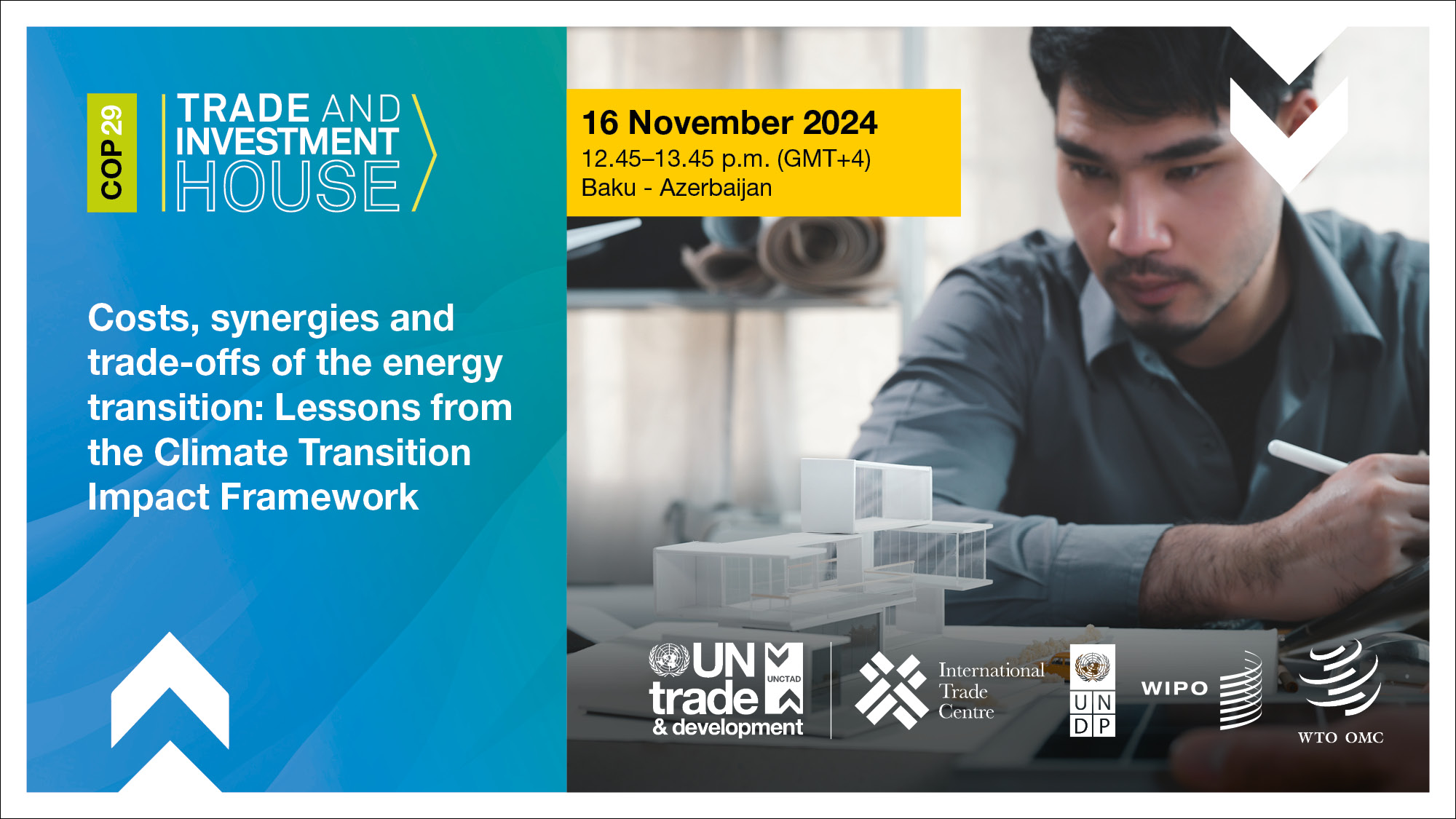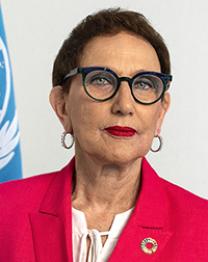
Achieving the goals of the Paris Agreement while ensuring an inclusive and equitable transition requires coherent development, climate, and trade policies. Countries’ development, trade, and climate change policies must be aligned to capture co-benefits, including adaptation benefits while minimizing trade-offs between the climate imperative and the Sustainable Development Goals.
The session will explore lessons learned and future exploration from using the Climate Transition Impact Framework (C-TIF) forward-looking approach to compare the potential socioeconomic impacts of different climate action pathways. Further deployment of the tool would be available for developing countries as of 2025 on a demand basis.
The Framework would allow Parties to increase the understanding of the national and regional quantification of socioeconomic impacts of climate action pathways to delineate the trade-offs and synergies that decision-makers should consider in the design of response measures. It aims to equip climate action decision makers with a comprehensive quantitative projected fact base on the transition’s impacts on people.
The findings from the C-TIF can contribute to design energy transition strategies considering equitable and inclusive considerations. The panel, consisting of heads of IGOs, private sector and high-level government officials will discuss the importance of understanding the interrelated socioeconomic impacts of the transition and how the costs, synergies and trade-offs could be thought about.
In September 2021, Rebeca Grynspan was appointed Secretary-General of the United Nations Conference on Trade and Development (UNCTAD), becoming the first woman to lead the organization in its 60-year history.
Rebeca Grynspan, an economist and former Vice President of Costa Rica, is an experienced leader of international institutions with a substantive track record in government, UN diplomacy, economic policy and multilateral cooperation at the global level.
Prior to joining the United Nations, she was Vice President of Costa Rica and held cabinet positions as Minister of Housing, Minister Coordinator of Economic and Social Affairs and Deputy Finance Minister.
Previously, she served as Secretary-General of the Ibero-American Conference (2014–2021), chairing regional summits of Heads of State and Government; United Nations Under-Secretary-General and Associate Administrator of the United Nations Development Programme (UNDP); and UNDP Regional Director for Latin America and the Caribbean. She was a member of the UN Commission for the Reconstruction of Haiti, representing the UN Secretary-General.
At UNCTAD, Grynspan has been at the centre of critical negotiations to address global trade and development challenges. She played a decisive role in the successful Black Sea Grain Initiative brokered between the UN, Türkiye, the Russian Federation and Ukraine, which enabled the safe export of over 32 million tons of grain, lowered global food prices by 22% and prevented millions from falling into food insecurity. She also leads the UN Global Crisis Response Group on food, energy and finance, and has represented the UN in G20 summits.
Her leadership has been recognized widely. In 2024, she received the Doha Negotiator of the Year Award for spearheading UN efforts to restore Black Sea trade routes. In 2025, Spain’s Ministry of Foreign Affairs, European Union and Cooperation awarded her the inaugural Isabel Oyarzábal Women in Multilateralism International Prize for her contribution to multilateralism.
Ms. Grynspan holds degrees in economics from the University of Costa Rica and the University of Sussex, and honorary doctorates from several European universities.



